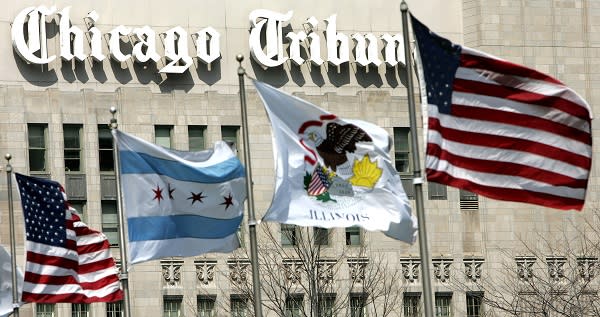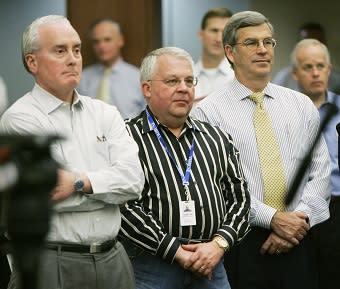 The Upshot
The UpshotReport: Tribune CEO promoted hostile, sexist office culture

Tribune Co. chief executive Randy Michaels wasted no time pushing back against a forthcoming New York Times investigation of the allegedly hostile and sexist culture he helped promote within the bankrupt media giant. He opted for a pre-emptive strike.
Michaels, in a Tuesday-night staff memo, said the Times piece will be filled with "distortions and rumors" — many of which he claims were spread by an ex-Chicago Tribune staffer. He wrote that Times reporter David Carr is running with unsubstantiated allegations and took a none-too-subtle dig at the reporter by linking to his memoir of drug addiction and recovery.
It turns out Michaels had reason to be concerned. Carr's article — "At Flagging Tribune, Tales of a Bankrupt Culture" — landed on Wednesday's front page and began with a salacious anecdote about the chief executive. In January 2008, Carr writes, Michaels — then a new executive at a media company just sold for $8.2 billion — "offered [a] waitress $100 to show him her breasts" in front of his new co-workers.
One former Tribune staffer described the incident as follows: "Here was this guy, who was responsible for all these people, getting drunk in front of senior people and saying this to a waitress who many of us knew. I have never seen anything like it."
Michaels denied the account, in the only comment he made for the entire 4,500-word article.
The rest of the article doesn't go well for Michaels or Tribune Co.'s tough-talking owner, Sam Zell. The waitress incident, Carr writes, "was a preview of what would become a rugged ride under the new ownership."

In December 2007, Zell purchased Tribune, parent company of the Los Angeles Times, Hartford Courant, Orlando Sentinel, Baltimore Sun and flagship Chicago Tribune. He came to the media business with no experience as a newspaper executive; he was a renowned dealmaker known for buying distressed properties, chiefly in the real estate sector. But that didn't stop Zell from berating reporters at Tribune papers, dismissing their experience and condescendingly saying they didn't know anything about the business world or what readers actually wanted. (In early 2008, a top Los Angeles Times editor compared Zell's fiery appearance in the Washington bureau to a "suicide bombing".)
Zell was purportedly going to bring business savvy to Tribune, one of several media companies struggling in the digital age, as newspaper advertising revenue and circulations continued to plummet. But less than year later, his heavily leveraged deal fell apart. Tribune filed for bankruptcy with a record $13 billion in debt. More than 4,000 Tribune employees have lost their jobs since Zell took over.
For those remaining, the company culture could be toxic. Carr writes that "Michaels's and his executives' use of sexual innuendo, poisonous workplace banter and profane invective shocked and offended people throughout the company." The Tribune Tower "came to resemble a frat house, complete with poker parties, juke boxes and pervasive sex talk."
Zell became known for peppering staff meetings with macho rhetoric and a slew of four-letter words. And the new employee handbook under Zell, Carr reports, actually warned staffers that they might hear words and jokes they didn't like. It's as if the company, through its new rules, sanctioned the type of frat house behavior now leaking out. The idea, according to the handbook was to emphasize a "loose, fun, nonlinear atmosphere [that's] important to the creative process."
In the internal Tribune memo on the Carr story, Michaels continues to beat that same drum, writing that his intention has always been to "create a fun, non-linear creative environment." Unfortunately for Michaels, it seems that more than a few Tribune staffers might have a different definition of fun.
(Photos: AP/Charles Rex Arbogast. Randy Michaels, in the dark striped shirt, is shown with other Tribune executives in 2007.)

